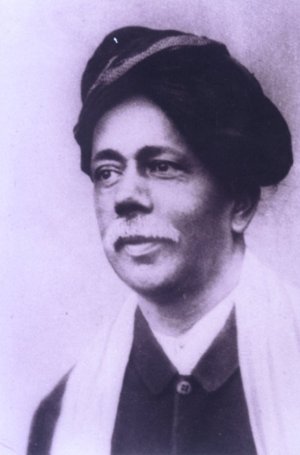Rao Bahadur Deshpande
by Jyotsna Kamat
First Online: August 06, 2003
Page Last Updated: December 07, 2024
"Sirigannadam gelge" ( Long live Kannada!) is a very common avocation in public assemblies in Karnataka. However, few are in the know that this pithy and richly meaningful phrase was coined by Rao Bahadur R.H. Deshapande more than a hundred years ago.
All the four districts of former Bombay presidency (namely Dharwad, Bijapur, Belgaum, and Karwar) which form part of North Karnataka were together known as Southern Maratha country. Just before the British took over the region, Peshwa influence was strong in this area, and naturally Marathi language and Maratha bureaucrats dominated all administrative and cultural fields.
However, Kannada was the language of the local folk. The local population could read as well as write Kannada, but there were no Kannada schools. All brilliant and well off students went to Pune and Mumbai for higher education, and learnt Marathi instead.
© K. L. Kamat

R.H.Deshpande
(1861-1931)
R.H. Deshpande who hailed from Dharwad was one of these fortunate students. When he returned to Dharwad after obtaining a Masters degree, he was taken in procession on an elephant in Dharwad! He was the first person in the region to obtain such a high honor.
Deshpande was in governmental service for a while, but gave it up because of Marathi's overpowering influence in administration, and nepotism of the Marathi speaking people in the government.
In 1890, he founded the famous Karnataka Vidyavardhaka Sangha at Dharwad. He actively helped establishment of Kannada Sahitya Parishad (Kannada Literary Academy), and the Karnataka College at Dharwad -- a premier college in the years to come.
He encouraged budding Kannada writers like Prahlad Naregal, Krishna Kumar Kallur, and S.G. Kulakarni, each one of whom went on to become established writers.
Deshpade started a periodical "Vagbhushana", which became the mouth-piece for the revival of Kannada. He wrote ten books in Kannada, the most famous of them being "Karnataka Samrajya" in two volumes. He breathed his last while working on the third volume. Awareness of Modern Kannada as a literary language gained a major boost under his lectures, tours, and leadership.
B.M. Shree (portrait), known as sage Kanwa of Karnataka has said that is was R.H. Deshapande who initiated him in Kannada movement.
What is known as Karnataka of today at Deshpande's time was divided into five different states, and only because of people like Deshpande, the movement of unification gained momentum and people became more and more aware of their rich language and heritage.
![]()
See Also:
- History of Kannada Language -- Jyotsna Kamat on the origins, development and important periods in the Kannada literature.
- Kannada Writers &Poets

